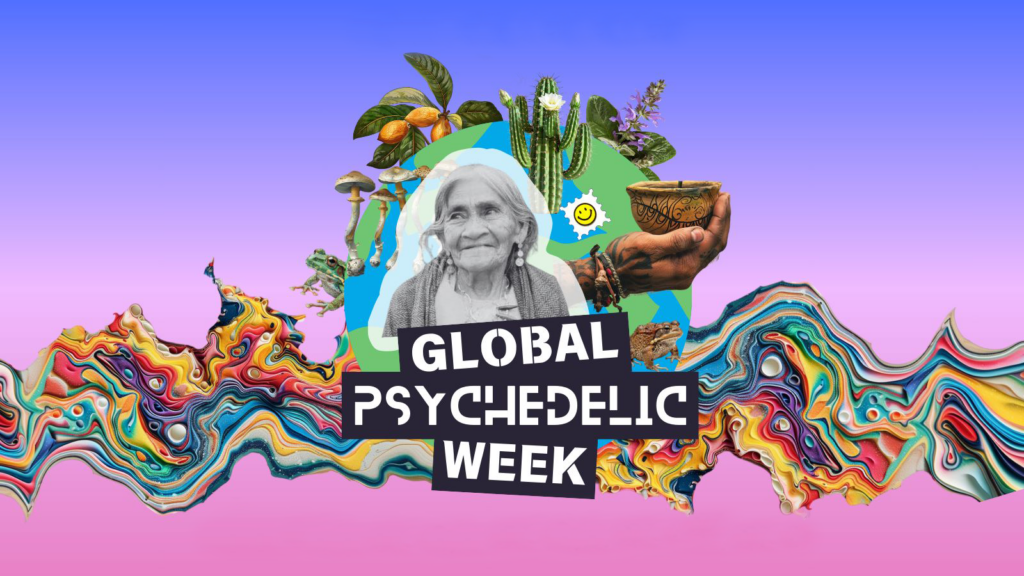A version of this essay appears in the author's new book, Everything Is God: The Radical Path of Nondual Judaism, to be released this month by Trumpeter.
There was once a prisoner who yearned for freedom. One day, the prophet Mohammed appeared to him, and gave him a set of keys to his cell, saying "Your piety has been rewarded. Allah has set you free." So the prisoner took the set of keys, mounted them on the wall, and prayed to them five times a day. — a Sufi tale
Most politically-engaged folks know that a majority of Israel's "settlers," living in what most people regard as the occupied West Bank, are religious fundamentalists, motivated by a religiously-inspired nationalism that regards all of Israel/Palestine as Greater Israel, a kind of politicized Promised Land that is God's gift to the Jews. But what many of us in the spiritual community may not know is that many of those "fundamentalists" are actually part of the "peace and love" hippie crowd — nature-loving, long-haired young people who are likely to meditate, sing songs, and smoke marijuana before prayer.
The cognitive dissonance can be shocking. In America, we're used to hippies being for peace and love not just rhetorically, but politically as well. The only debate among the dreadlocked crowd in the states is whether to vote Democrat, Green, or not vote at all. But Israelis are all-too-familiar with the sight of shaggy-looking, floppy-kippa-wearing settler youth who both play guitars and carry M-16s.
What's going on? How is it possible that a population that says it loves peace is actually so vehemently against the most rudimentary steps toward achieving it? The answer, I think, has a lot to say to all of us who follow spiritual disciplines — much of which we may not want to hear.
What I want to suggest is that, more than delusion and nationalism, more than hypocrisy and narcissism, more than the Bible's endlessly co-optable expressions of (and certainly more than simple) hatred and ethnocentrism, it is the spiritual "spark" itself that animates the hippie-settlers of the West Bank. These are not people who mistake dogma for spirituality; they know about spirituality. The ones who are meditating; the ones who think religion is about spiritual work; the ones who are striving to be in the Divine Presence — these are precisely the ones who are among the most ardent pro-settler, anti-peace-process Jews in Israel.
It would be easy to say, "well, they've got God wrong." But on what grounds? I have a spiritual experience, so do they. What is happening is real. These people are pulling a trigger, and experiencing the Divine. But then, and here I think is the point, they fetishize the trigger.
Fetishizing the trigger is when a trigger (e.g., a holy land, an asana, whatever) gives you a real spiritual experience, but you then make the mistake of thinking it's all about the trigger. The finger points at the moon, but wow, how about that finger! And fetishizing means: it's only this trigger, this trigger is the point, this trigger is better than others. Or: it's these words, it's this Torah, this posture, this antioxidant, this vision, this tool, this medicine, this politics, these souls, this place, these people. It's that turn, that move — that fetishizing of the trigger — that causes the distortion. Now the entire world is seen through the prism of the trigger. Now the trigger is reified into an objectively real reality. The reality.
This is more than mere particularism. No — this is particularism plus a very particular power: the power of spirit. Mysticism excites the passions, stimulates the soul. But when it is tied to myth, it becomes toxic, because while the passions are universal, the myth is particularistic. Combine the particularism of myth with the excitement of mystical practice — and violence often results.
Moreover, it's not that certain fundamentalists are confused in a way that I am not. We all make this mistake — it's natural and human to do so. You feel good after doing something, so you value the something that brought you there, whether it's a meditation practice, a territory, or a car. We fetishize our own triggers all the time, which is why we're constantly trying to arrange the conditions for our happiness.
Yet fetishizing the trigger is also confusion. The tools of religion are meant to lead to liberation — mysticism, love, and contemplation — but then they get ossified if we forget that you're not supposed to worship a key; you're supposed to put it in a door and turn. In other words, you're supposed to liberate yourself, experience the Divine, leave the prison cell of separate self and merge into your true reality. But the key is so powerful, especially when it is turned and these wonderful liberations, these beautiful ecstatic feelings, really do arise! How could you not fetishize it, worship it, and treat it as unique in the world? There is real juice in spiritual practice, and that is its danger as well as its attraction. So, at the very least, we have to be more careful than most. Spiritual "juice" infuses everything — including very dumb and dangerous ideas.
We should all be suspicious of zeal. Personally, I still haven't given up my ethos of seizing the day, living as intensely as possible, and trying to appreciate the miracles in the everyday. But I have started appreciating the quieter pleasures of ordinary life, because it feels like fewer people would be willing to fight and die for them. In the religious community in Israel, one often hears a kind of pity for the secular people who lack the energy, direction, and focus that religion can bring to one's life. But maybe we could all use a little less energy — at least if we're not repeating to ourselves, over and over again, like a mantra: Other people feel this too… Other paths can lead here too…
But pluralism alone will not do it. Of course, we should allow ourselves the joys of ecstasy. But it's the same imputation of value onto whatever experience seems most to resonate that engenders the mysticism of absolutes. Systems, dogmas, and codes belong in the realm of the relative, and relative tools — cool reflection, ethical reasoning — are the best ones for evaluating them. Transcendent experiences go beyond that realm, and reductive reasoning can be as much hindrance as help. Combining the two is the idolatry of fetishization.
Image by gun show, courtesy of Creative Commons license.















